
by Dr. Adkins | May 31, 2019 | Blog, Dental Topics 1, Oral Surgery
Many oral surgeries go beyond simply removing a tooth, and the cause is not always related to poor dental hygiene. Some reasons for oral surgery just can’t be predicted or avoided, such as injuries, birth defects, or cancer. Great strides have been made in oral surgery, especially for restoration and reconstruction techniques. These are some common reasons that oral surgery is advised.
Tooth loss
Replacing missing teeth with dental implants requires oral surgery so that the titanium implant can be inserted into the jaw. Providing an alternative to dentures and bridges, implants offer a secure and permanent solution that looks very natural. Candidates with adequate bone density, good overall health, and who practice proper oral hygiene are considered for implant surgery. After the implant heals, a crown will be placed on top to complete the restoration.
Impacted teeth
One of the most common oral surgeries is to remove impacted wisdom teeth. Often occurring during the late teen to early adult years, wisdom teeth are unable to erupt properly and must be extracted to prevent future problems.
TMJ
Temporomandibular joint disorders involve the joint where the skull and lower jaw come together in front of the ear. Facial pain, headaches, popping, and jaw problems can result, and dentists try to treat the disorder with solutions like splints, physical therapy, and medications. Severe cases can require surgery to fully correct the TMJ problems.
Injuries
Car accidents, sports injuries, and other trauma can cause broken facial bones or jaws. Surgery may be necessary to realign the jaws, wire bones together, and otherwise repair the injury so that normal function and comfort can be restored.
Cleft repairs
Birth defects like a cleft lip or palate are corrected through oral surgery. Usually a series of surgeries over a span of years is needed to improve the appearance and proper function of the areas affected by the birth defect.
Biopsy
Surgery is performed to remove cancerous tumors or lesions in the jaws or facial bones. This is especially true when the joints or connecting muscles and tendons are involved.
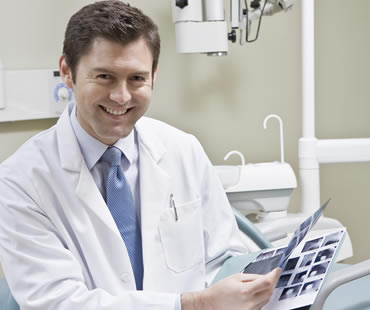
by Dr. Adkins | May 3, 2019 | Blog, Dental Topics 1, Root Canal Treatment
Endodontics is a dental term often linked to a more common dental procedure you’ve probably already heard of called root canal treatment. Endodontics focuses on the pulp of your tooth, which holds nerves and blood vessels supplying nutrients and oxygen to your tooth. When the pulp is infected or injured, endodontic treatment may be performed to save the tooth.
During endodontic treatment, the hollow part inside your tooth is cleaned, disinfected, and filled. It is often the best way to save a tooth that has been damaged by decay, trauma, or other causes. Common symptoms that endodontic treatment is necessary include pain, tooth sensitivity, or exposure of the pulp due to tooth fracture.
After examining your tooth and X-ray results, your dentist will recommend the kind of endodontic treatment you need based on how seriously the pulp is impacted. One type is called vital pulp therapy, which has a goal of preserving and protecting your tooth’s pulp. This procedure involves removing only the pulp from the crown of your tooth and not from the root. It is only advised when there is no swelling or abscess present, and the tooth is secure.
Another type of endodontic treatment is non-vital pulp therapy, which is known as root canal treatment. It is performed when there is no chance of saving the pulp of your tooth. The whole pulp will be removed from inside your tooth, and the canals will be cleaned and filled with a special material. Then a stainless steel crown will be placed on the tooth.
Sometimes endodontic treatment is not recommended, and the tooth needs to be extracted instead. This choice depends on factors such as tooth location, age of the tooth, extent of damage, and the patient’s overall health. Your dentist will be able to advise you on the best treatment for your condition.
Schedule your appointment at our McDonough dental office
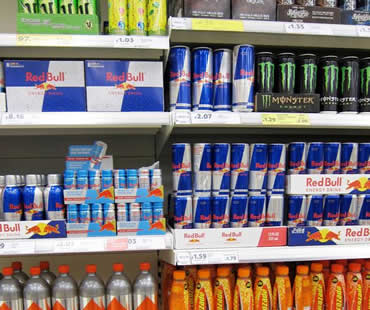
by Dr. Adkins | Mar 29, 2019 | Blog, Dental Topics 1, General Dentistry
Though sports drinks and energy drinks may provide refreshment after a workout or keep you awake to study, they can also do serious damage to your teeth. People often think of these drinks as healthy alternatives to soda, but that’s not the case. In fact, research shows that these beverages are up to 10 times worse for your oral health than cola.
The issue with sports and energy beverages comes from the high acidity. Manufacturers add acid to these drinks to balance the sugar. Even more than soft drinks, the acid in sports and energy beverages can erode tooth enamel, which increases the odds of cavities. Once teeth are weakened by decay, you become more susceptible to future problems down the road.
Another reason sports and energy drinks are problematic is the way people consume them. Because most individuals sip on them throughout the day, teeth are continuously exposed to the acid in the beverages. To minimize the risks to your oral health, consider these tips:
- Use a straw when you consume these beverages because it restricts the amount of liquid that gets on your teeth.
- Chew sugar-free gum, which promotes saliva production and rinses the acid from your teeth.
- Brush your teeth right after drinking sugary beverages to remove any residue and keep teeth healthy.
- Make H2O your first choice. Consuming lots of water and limiting intake of sodas, sports beverages, or energy drinks will help you stay hydrated and promote good oral health.
Family and general dentist in McDonough
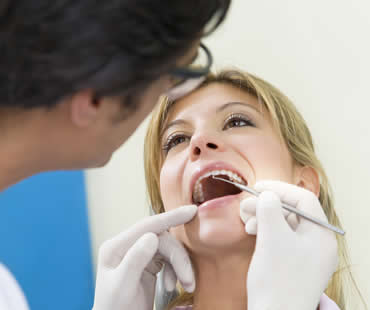
by Dr. Adkins | Mar 8, 2019 | Blog, Dental Topics 1, General Dentistry
Brush and brush and brush, but you probably will not be able to get rid of all the plaque on your teeth. Even with regular brushing, some amount of plaque will build up on your teeth and turn into a hard substance called tartar. It simply can’t be removed without professional help.
What is tartar?
Tartar is a hard, yellow or brown deposit that forms on your teeth both above and below your gum line. Any food particles remaining in your mouth after eating will breed bacteria, which creates a thin film on your teeth called plaque. Any plaque that isn’t removed with brushing and flossing will harden to create tartar.
Is it harmful?
Tartar makes the surface of your teeth rough, which attracts food particles and therefore accelerates tartar formation. If you allow tartar to continue building up, your teeth will become discolored and your gums will be at risk. You will likely develop gingivitis, in which your gums become swollen and red. They will bleed easily and become painful, and eventually can lead to tooth loss. Advanced gum disease is even linked to higher risks of stroke, heart attack, and lung disease.
How is it removed?
Tartar is too hard and stubborn to be removed with regular brushing. The only effective way to eliminate tartar is by visiting your dentist and having it removed using professional equipment. This procedure is commonly called scaling.
Can I prevent tartar buildup?
Regular brushing at least twice daily with a fluoride toothpaste can help reduce tartar formation. Unfortunately, even with proper dental hygiene, plaque buildup is inevitable over time and will become tartar. Schedule regular checkups with your dentist to have professional cleanings performed.
If you need a dentist in McDonough contact us today
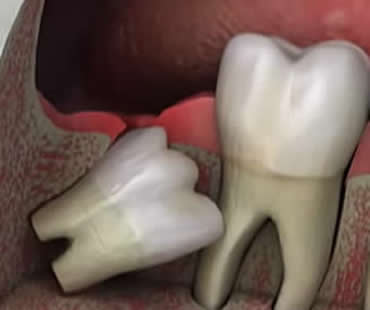
by Dr. Adkins | Feb 1, 2019 | Blog, Dental Topics 1, Oral Surgery
Also called third molars, wisdom teeth are the last set of teeth to erupt. Usually, people get their wisdom teeth in during their late teens and early 20s. Although some individuals have no trouble with their wisdom teeth, many people end up having these teeth removed because they may become impacted and create dental health issues. Learn more about wisdom teeth with this Q and A:
Do I need to have my wisdom teeth removed?
If your wisdom teeth aren’t causing problems, you can leave them alone. Typically, wisdom teeth are crooked or impacted, which can generate problems with the surrounding teeth. Also, wisdom teeth can be harder to keep clean, so the risk of decay on these teeth is higher.
When should I have these teeth taken out?
For optimal results, most dentists recommend wisdom teeth removal for patients when they are between 16 and 22 years old. The formation of the roots isn’t complete, so you have fewer complications.
Are there any risks?
As with any surgery, you can have issues arise, but the biggest concerns are nerve damage and dry sockets. Older patients have a greater chance of nerve damage because the root has more fully developed. Dry sockets occur when the post-surgery blood clots dislodge.
Does my age matter?
Some adults don’t experience any symptoms until they are in their 30s, 40s, or 50s. You can have these teeth extracted at any point, but when you get older, surgery is more difficult and the recovery takes longer. If you have trouble with your wisdom teeth, contact your dentist right away for a complete exam.
McDonough dental office for wisdom teeth – JSA Family Dental Care
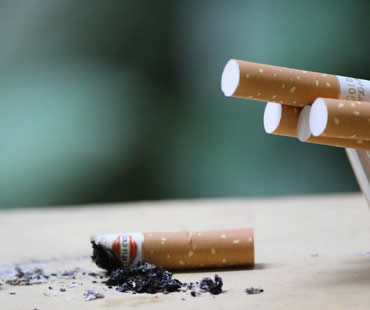
by Dr. Adkins | Jan 18, 2019 | Blog, Dental Topics 1, General Dentistry
A number of serious health problems like cancer are linked to smoking, but your oral health is also at risk from using tobacco. Your teeth can be severely stained, turning them yellow or brown, and your lips can become darker too. Smokers have a higher risk of tooth decay, and bad breath is nearly inevitable. The negative outcomes of smoking continue to worsen the longer you keep doing it, so it’s highly advisable to kick the habit. However, as most smokers can attest, giving it up is not easy. Here are some tips that may help you quit smoking.
Make a list
Create a list of the reasons you’d like to quit smoking, and look at it often to remind you of your goals and the benefits you’ll achieve. These may include things like improving your overall health, restoring your smile, making loved ones proud of you, and even saving money.
Choose a date
Select a date on the calendar to stop, and stick to it. Having a concrete target can help you focus on the challenge ahead.
Ask for help
The support and encouragement from others can be a huge part of quitting smoking. Tell your family and friends about your goal, and allow them to play a part in accomplishing it.
Occupy your mouth
Sucking on sugarless candy or mints can keep your mouth busy, so you’ll be less inclined to put a cigarette in it. Chewing sugar-free gum is another great remedy for the urge to light up.
Keep busy
Try to find things to occupy your time and mind so that you aren’t constantly thinking about smoking. Take up a new hobby that involves both your mind and your hands so that you are busy with other, more beneficial, activities than puffing on a cigarette.
We treat patients from McDonough and the surrounding area








 (470) 665-5292
(470) 665-5292  E-Mail Us
E-Mail Us 
